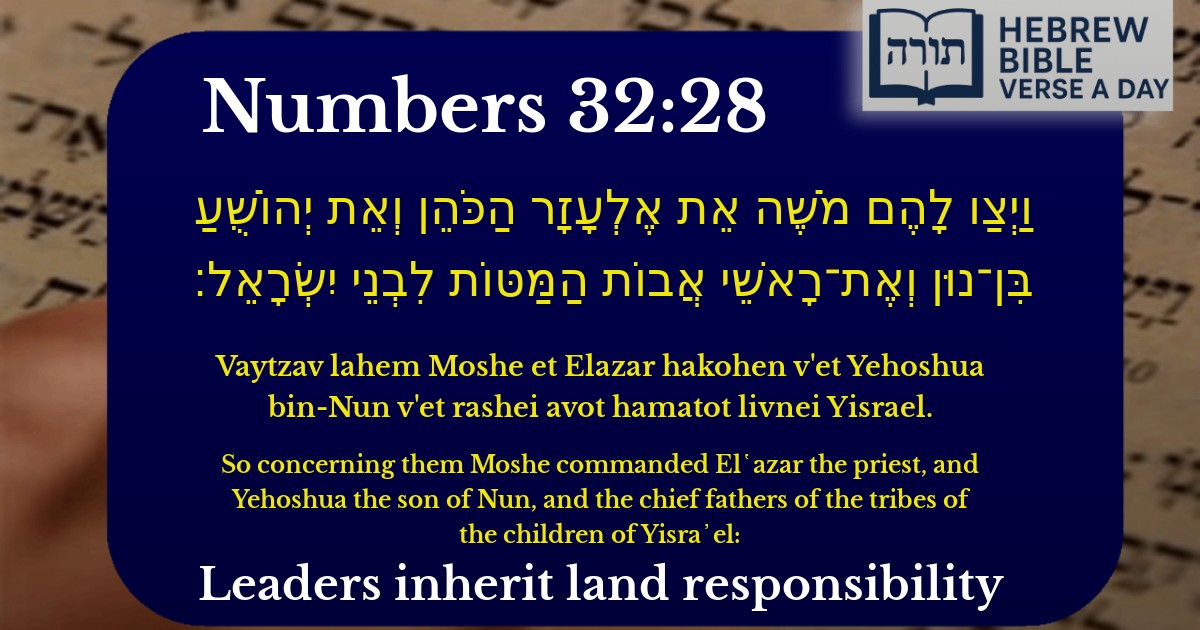Frequently Asked Questions
Q: Why did Moshe command Elazar, Yehoshua, and the tribal leaders in Numbers 32:28?
A: According to Rashi, Moshe gave this command to ensure that the tribes of Reuven and Gad would fulfill their promise to help conquer the land of Canaan before settling on the east side of the Jordan. He involved Elazar the Kohen, Yehoshua (his successor), and the tribal leaders to make this agreement official and binding for future generations.
Q: What is the significance of mentioning Elazar, Yehoshua, and the tribal leaders together in this verse?
A: The Ramban explains that this combination represents the three pillars of Jewish leadership: Elazar as the Kohen (spiritual leadership), Yehoshua as the future political/military leader, and the tribal heads representing the people's leadership. Together, they would oversee the fulfillment of the agreement made with the tribes of Reuven and Gad.
Q: How does this verse relate to keeping promises in Judaism?
A: The Talmud (Bava Metzia 49a) teaches that keeping one's word is extremely important in Jewish law. This verse demonstrates how seriously Moshe took the promise made by the tribes, going so far as to formally record it before multiple witnesses in positions of authority to ensure it would be honored.
Q: Why is Yehoshua mentioned specifically in this verse?
A: According to Midrash Tanchuma, Yehoshua is mentioned because as Moshe's successor, he would be responsible for leading the conquest of Canaan. His presence made the agreement binding for the future leader who would actually oversee its fulfillment after Moshe's passing.
Q: What lesson can we learn today from Numbers 32:28?
A: This verse teaches the importance of establishing clear agreements with proper documentation and witnesses (similar to a modern contract). The Sforno notes that involving multiple parties of different roles (religious, military, tribal) created checks and balances to ensure the promise would be kept - a principle applicable to business and personal agreements today.


Context of the Verse
The verse (Bamidbar 34:17) appears in the context of Hashem instructing Moshe regarding the division of the Land of Israel among the tribes. Moshe is commanded to appoint specific leaders to oversee this process, ensuring a fair and orderly distribution of the land.
Key Figures Mentioned
Significance of the Command
The Sforno notes that Moshe's directive emphasizes the importance of leadership collaboration—combining the spiritual authority of Elazar, the military and administrative leadership of Yehoshua, and the tribal representation to fulfill this sacred task. This structure ensured that the division of the land was conducted with both divine guidance and communal consent.
Halachic Implications
The Ramban (Nachmanides) highlights that this verse establishes a precedent for major national decisions requiring multiple layers of leadership—priestly, political, and tribal—to avoid unilateral authority. This model is echoed in later halachic structures, such as the Sanhedrin, which combined scholars, leaders, and representatives of the people.